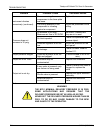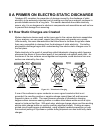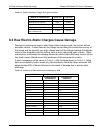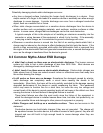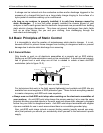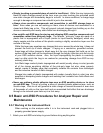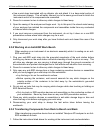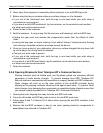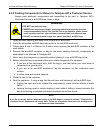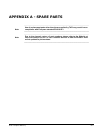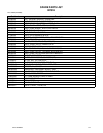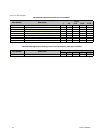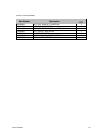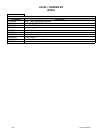
A Primer on Electro-Static Discharge
Teledyne API Model 701 Zero Air Generator
8-8 01671H (DCN6051)
8.5.5 Packing Components for Return to Teledyne API’s Customer Service
Always pack electronic components and assemblies to be sent to Teledyne API’s
Customer Service in anti-ESD bins, tubes or bags.
WARNING
DO NOT use pink-poly bags.
NEVER allow any standard plastic packaging materials to touch the electronic
component/assembly directly.This includes
, but is not limited to, plastic bubble-
pack, Styrofoam peanuts, open cell foam, closed cell foam, and adhesive tape.
DO NOT use standard adhesive tape as a sealer. Use ONLY anti-ESD tape.
1. Open the outer shipping box away from the anti-ESD work area.
2. Carry the still sealed ant-ESD bag, tube or bin to the anti-ESD work area.
3. Follow steps 6 and 7 of Section 8.5.3 above when opening the anti-ESD container at the
work station.
4.
Reserve the anti-ESD container or bag to use when packing electronic components or
assemblies to be returned to Teledyne API.
1. Never carry the component or assembly without placing it in an anti-ESD bag or bin.
2. Before using the bag or container allow any surface charges on it to dissipate:
If you are at the instrument rack, hold the bag in one hand while your wrist strap is
connected to a ground point.
If you are at an anti-ESD workbench, lay the container on the conductive work
surface.
In either case wait several seconds.
3. Place the item in the container.
4. Seal the container. If using a bag, fold the end over and fastening it with anti-ESD tape.
Folding the open end over isolates the component(s) inside from the effects of static
fields.
Leaving the bag open or simply stapling it shut without folding it closed prevents the
bag from forming a complete protective envelope around the device.
NOTE
If you do not already have an adequate supply of anti-ESD bags or containers available, Teledyne API’s
Customer Service department will supply them. Follow the instructions listed above for working at the
instrument rack and workstation.



